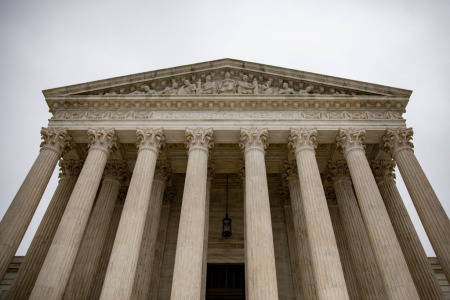Supreme Court urged to stop West Point from considering race in admissions

An advocacy group has appealed to the U.S. Supreme Court to stop the U.S. Military Academy in West Point, New York, from using race as a factor in its admissions policy after the high court struck down similar policies at other institutions last year.
Students for Fair Admissions recently filed litigation against West Point and the U.S. Naval Academy in Maryland, hoping to add the issue to the Supreme Court’s emergency docket later this week.
“Every year this case languishes in discovery, trial, or appeals, West Point will label and sort thousands more applicants based on their skin color — including the class of 2028, which West Point will start choosing in earnest once the application deadline closes on January 31,” SFFA’s lawyers wrote in the application for an injunction pending appellate review.
“Should these young Americans bear the burden of West Point’s unchecked racial discrimination? Or should West Point bear the burden of temporarily complying with the Constitution’s command of racial equality?”
Supreme Court Justice Sonia Sotomayor ordered West Point to respond to the petition by 5 p.m. Tuesday, according to The Hill, with Sotomayor possibly referring the issue to the full court.
Earlier this month, U.S. District Judge Philip M. Halpern, a Trump appointee, rejected the SFFA’s petition for a preliminary injunction, arguing that such a measure could cause major issues at West Point.
“A full factual record is vital to answering this critical question whether the use of race in the admissions process at West Point furthers compelling governmental interests and whether the government’s use of race is narrowly tailored to achieve that interest,” Halpern wrote, as quoted by The Washington Post.
Last December, U.S. District Judge Richard Bennett in Baltimore rejected the group’s request for an injunction against the Naval Academy because he believed it had failed to show that the lawsuit was likely to succeed.
In June 2023, the SFFA scored a victory when the Supreme Court ruled 6-3 in the case of Students for Fair Admissions, Inc. v. President and Fellows of Harvard College, that Harvard and the University of North Carolina could not use race as a factor in student admissions.
Chief Justice John Roberts wrote in the majority opinion that the courts “have permitted race-based admissions only within the confines of narrow restrictions.”
“University programs must comply with strict scrutiny, they may never use race as a stereotype or negative, and — at some point — they must end,” wrote Roberts, alluding to the 2003 Supreme Court decision Grutter v. Bollinger, which said that “the use of racial preferences” for admissions “will no longer be necessary” within the next quarter century.
“Respondents’ admissions systems — however well intentioned and implemented in good faith — fail each of these criteria. They must therefore be invalidated under the Equal Protection Clause of the Fourteenth Amendment.”
Sotomayor dissented, being joined by Justices Elena Kagan and Ketanji Brown Jackson, arguing that “the Fourteenth Amendment enshrines a guarantee of racial equality.”
“The Court long ago concluded that this guarantee can be enforced through race-conscious means in a society that is not, and has never been, colorblind,” wrote Sotomayor. “Today, this Court stands in the way and rolls back decades of precedent and momentous progress.”
“It holds that race can no longer be used in a limited way in college admissions to achieve such critical benefits. In so holding, the Court cements a superficial rule of colorblindness as a constitutional principle in an endemically segregated society where race has always mattered and continues to matter.”





















